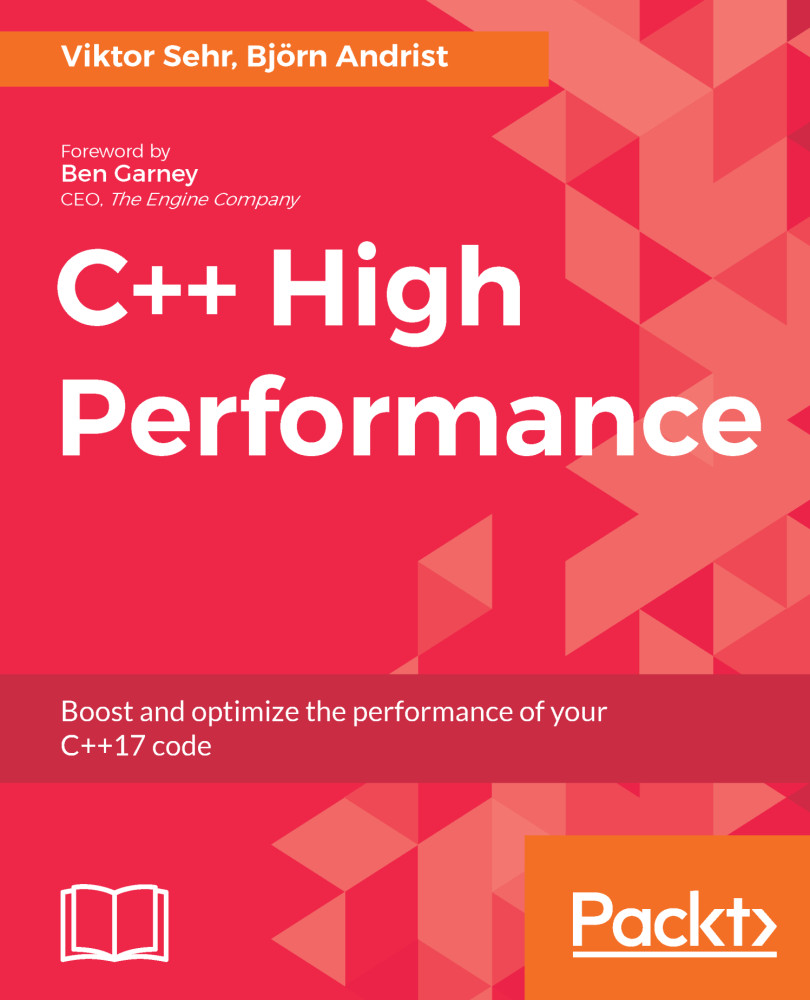The stack and the heap are the two most important memory segments in a C++ program. There is also static storage and thread local storage, but more on that later. Actually, to be formally correct, C++ doesn't talk about stack and heap; instead, it talks about storage classes and the storage duration of objects. However, since the concepts of stack and heap are widely used in the C++ community, and all the implementations of C++ that we are aware of use a stack to implement function calls and manage automatic storage of local variables, we think it is important to understand what stack and heap are. In this book, we are also using the terms stack and heap rather than the storage duration of objects.
Both the stack and the heap reside in the process' virtual memory space. The stack is a place where all the local variables reside; this also includes arguments...


